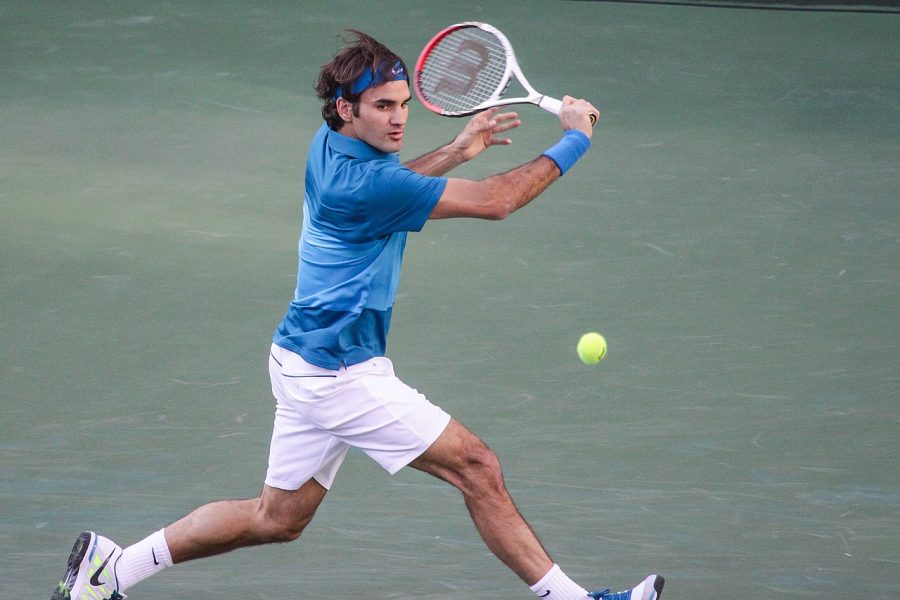Harvey: Roger Federer’s retirement and the future of tennis
Mike McCune CC BY 2.0 [Wiki Commons]
Roger Federer closed his tennis career in the 2022 Laver Cup facing his last ever professional partner, Rafael Nadal.
November 16, 2022
Roger Federer’s last ever tennis match ended in tears.
After losing the Laver Cup, both Federer and his doubles partner Rafael Nadal struggled to hold back their emotions. Federer struggled with maintaining fitness and staying injury free at age 41. He was a central figure in tennis in the last 20 years, and his retirement, alongside another tennis legend, Serena Williams’s, marks the end of an era.
I first remember watching Federer during the summer of 2012. I was in England with my whole family crowding around a TV screen watching the Wimbledon final. The curtains were drawn, and the summer heat radiated through the dark room. Although we were cheering on Andy Murray, a Scottish and British tennis icon, I was totally enamored by Federer’s skill. His delicate and elegant play brought the crowded Wimbledon Center Court into the TV room. This early experience influenced how I watch tennis today.
Federer’s talent is widely recognized. His exceptional elegance, graceful backhand, astonishing net game and unique improvisation have been written about extensively. These attributes make him attractive to so many people. Not only that, but his humble and down-to-earth character is easy to get behind.
When I was getting back into tennis in 2021, watching old Grand Slam finals became a mainstay of my viewing experience. Almost every single of them contained at least one (if not two) of three players: Federer, Nadal and Novak Djokovic. The finals between the three were electric. There was Federer, the protagonist; Djokovic, the robotic baseliner; and Nadal, the clay court king. Every match brought rivalries, an opposition in style and the weight of history. Each win for one was another step toward beating the other two. In the past 20 years, their dominance was evident. One of the three was top of the ATP rankings — a system for ranking professional tennis players based on their performances in ATP tournaments — for 892 weeks, the equivalent of 17 years. In the process, Federer, Nadal and Djokovic each won 20 or more Grand Slam tournaments in the last 20 years. Out of the last 75 Grand Slams, 64 were won by the three. This dominant history has earned Federer, Nadal and Djokovic the title of “The Big Three.”
Over the last few years, the dominance of Federer, Nadal and Djokovic diminished, but “The Big Three” still won almost everything. The retirement of Federer is the true end of “The Big Three.” There is only a “Big Two” now, and even that could be grinding to a halt as well as Nadal and Djokavic near the latter years of their career. Up and comers such as Carlos Alcaraz, Jannik Sinner and Casper Ruud have massive shoes to fill — not just in getting the titles necessary to compete with the history of the “Big Three,” but in retaining and gaining a new tennis audience for the future. Although many different players could win tons of Grand Slams, the chemistry between the “Big Three” will be sorely missed.
I couldn’t help but get teary eyed when Federer said his farewells during the Laver Cup. As he walked off the court one final time, I wondered if there will be anyone like him ever again. Over the history of tennis, generations have come and gone, and rarely have fans looked back. In several decades, I know I’ll be the one harping on about the good-old days when Federer was in his prime. Until then, I’ll just sit back and see what the new generation has to offer.









